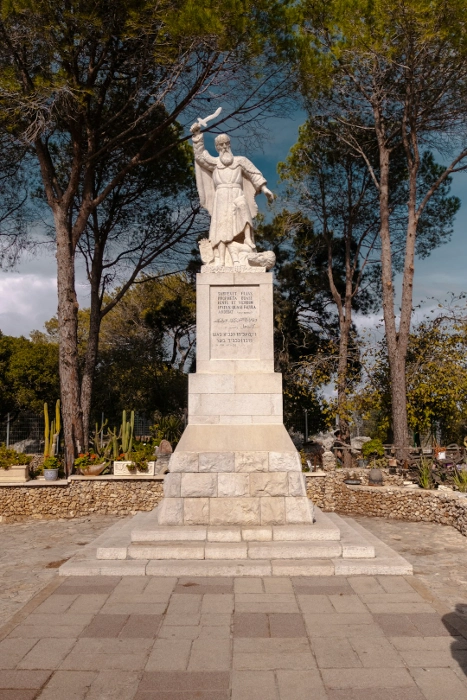The portrayal of Christ in Obadiah

The Book of Obadiah, one of the twelve minor prophets in the Old Testament, is a brief text with only 21 verses. Despite its brevity, it carries a powerful message primarily centered on the judgment against Edom, a nation descended from Esau, the brother of Jacob (Israel). Obadiah's prophecy does not explicitly mention Christ, but it contains themes and imagery that later Christian interpretation associates with the messianic hope and the ultimate triumph of God's kingdom, which Christians see fulfilled in Jesus Christ.
Context and Themes
Obadiah's prophecy is set against the backdrop of Edom's enmity with Israel. Historically, Edom is portrayed as a persistent adversary of Israel, often taking advantage of Israel's misfortunes. The central theme of the book is divine retribution against Edom for their pride and violence against their kin, Israel. This judgment is a manifestation of God's justice and a reminder of the covenant relationship between God and His people.
Judgment and Deliverance
The book opens with a vision of Edom's downfall (verses 1-9). Obadiah declares that despite Edom's seemingly impregnable position in the mountains, God will bring them down. This imagery of bringing down the proud resonates with later Christian interpretations of Christ's mission, which includes humbling the proud and exalting the humble (Luke 1:52).
In verses 10-14, Obadiah details Edom's crimes, including their violence against Jacob and their gloating over Jerusalem's destruction. This portrayal of Edom's betrayal and cruelty is met with a promise of recompense: as Edom has done, so it will be done to them. This principle of divine justice is a precursor to the New Testament teaching that Christ will judge the nations (Matthew 25:31-46).
The Day of the Lord
Verses 15-16 introduce the concept of the "Day of the Lord," a recurring theme in the prophetic literature signifying God's intervention in history to judge the wicked and vindicate the righteous. Obadiah's vision of this day extends beyond Edom to all nations, indicating a universal scope of judgment. This universal judgment foreshadows the New Testament's depiction of Christ's return as a day of reckoning for all humanity (Acts 17:31).
Restoration and the Kingdom of God
The latter part of Obadiah (verses 17-21) shifts from judgment to restoration and deliverance. Mount Zion (Jerusalem) is portrayed as a place of refuge and holiness, where the house of Jacob will possess their inheritance. The deliverance and restoration of Israel are seen as part of God's redemptive plan, which Christians believe culminates in the work of Christ.
The final verse (21) speaks of saviors going up to Mount Zion to govern the mountains of Esau, and the kingdom will be the Lord's. This declaration of God's ultimate sovereignty and the establishment of His kingdom aligns with the Christian understanding of Christ as the fulfillment of God's promises, bringing about the eternal kingdom of God (Revelation 11:15).
Christological Interpretation
While Obadiah does not explicitly mention Christ, Christian exegesis sees in its themes a foreshadowing of Christ's redemptive work. The judgment against Edom for their arrogance and violence is viewed as a precursor to Christ's role in establishing justice. The deliverance of Israel and the establishment of God's kingdom in Zion are seen as typological of Christ's ultimate victory over sin and death, bringing salvation to all nations.
In conclusion, Obadiah's portrayal of divine judgment, the "Day of the Lord," and the restoration of God's people provides a rich tapestry that Christian interpreters connect with the person and work of Jesus Christ, underscoring themes of justice, redemption, and the establishment of God's eternal kingdom.